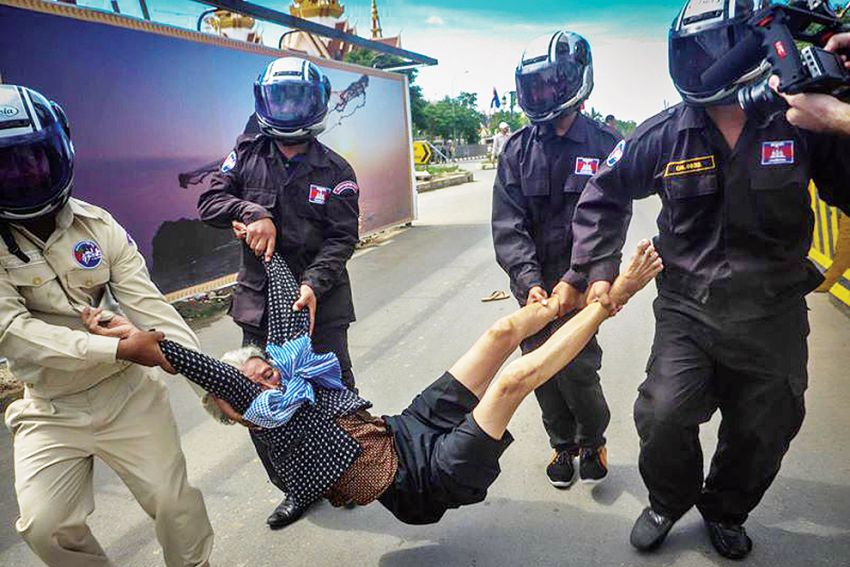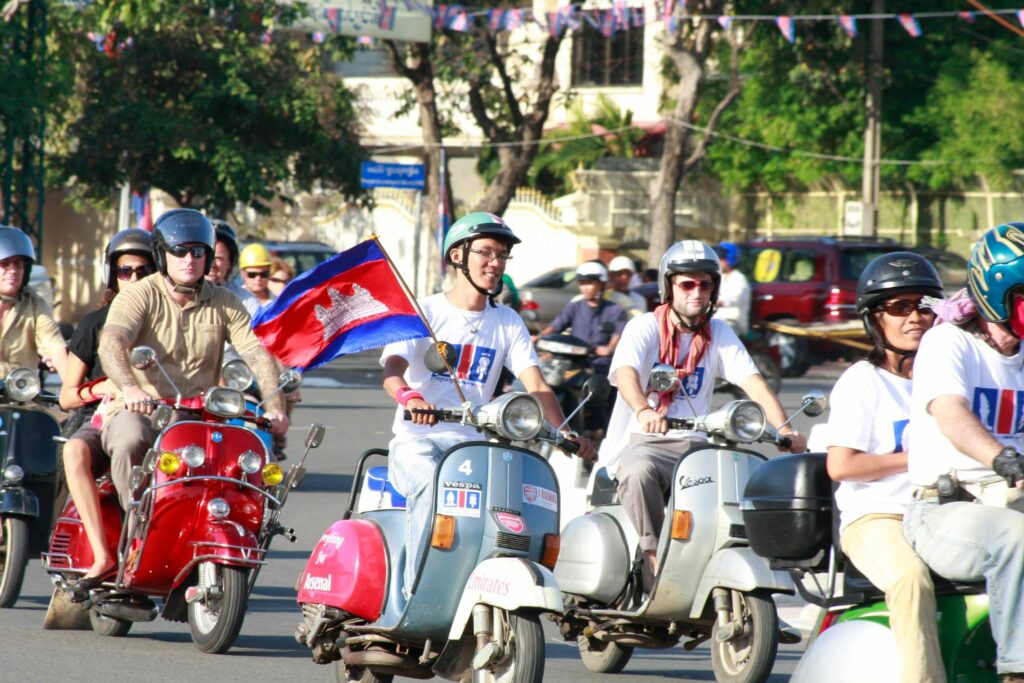Unofficial Translation from The Phnom Penh Post’s Khmer edition
TUESDAY, 11 AUGUST 2015,
TONG SOPRACH
ការធ្វើអន្តរាគមន៍ការលើកកម្ពស់តម្លៃស្ត្រីនៅតែមានការរើសអើង

In Cambodia, from one mouth to another, stories, whether true or false, spread like wildfire. Most of these are about well-known politicians, superstars, the wealthy, or celebrities. The ordinary and the poor, no matter what they suffer, are neglected. This is a clear indicator of social stratification, and the gap between whose lives or stories count.
The footage of the assault on Miss. Sasa, the former hostess of Reatrey Komsan (a TV show broadcasted on CTN every Saturday) by Oknha (a title bestowed on male individuals who contribute to the development of the nation) Sok Bun, which was uploaded on social media has caused dramatic effects on viewers, who have shown their anger and opprobrium through their comments on the man who assaulted her. As a celebrity, Miss. Sasa had been assisted by many figures, including some NGOs, in filing the complaint against Sok Bun, despite Sok Bun’s proposal to pay her US$100,000 as compensation. With pressure from Prime Minister Hun Sen and the Deputy Prime Minister and Minister of Interior Sor Kheng, Sok Bun was arrested. The assault, in addition, triggered social media users to call for the arrest Mr. Chhouk Bandith, who has been on the run since he shot three female garment workers in February 2012. He was arrested last week.
Miss. Sasa recovered from her physical injuries within a week; however, the emotional damage she sustains is not much higher, if comparable, with the other women who suffer from worse violence and mental suffering e as their lands or property were seized by the rich and the powerful. When they staged the protest in front of the Prime Minister’s Residence, the National Assembly and the Council of Ministers, the guards and the police attacked them.
As experience, the violence inflicted on women protesting the eviction of Beung Kak lake resulted in many injuries and even miscarriage. Several of those women have been captured and imprisoned, until now the land victims waited almost 10 years, just only a few of them got the land registration last month. This has also been the outcome for other women who traveled to Phnom Penh from remote areas to protest the loss of their homes from land grabs.
The ironic twist of the knife for these women is that they are assaulted by the police and the authorities, they very people who should be protecting them and bringing them justice. Miss. Sasa’s suffering was egregious, but short-lived compared to theirs.
Furthermore, rape and gang-rape “bauk” on women occur on a daily basis. Last month, an entertainment worker woman was brutally gang-raped and killed by six evil men in Po Senchey District, Phnom Penh. There have been many cases of assault on women working in entertainment services, in which they are killed or injured, but offenders usually avoid prosecution because the victim or their family accepts a sum of money as compensation. These issues deserve more attention than Miss. Sasa’s case.
The heat from abuse against women has flared up again in the public use of the term “Mee Srey” (មីស្រី), a very offensive term for Khmer women, by the Prime Minister Hun Sen in the previous week to refer to a female activists involved in the demonstration to demand an explanation of the irregularities in the 2013 General Election. Twelve women’s rights organizations have issued statements to voice their opposition to the use of this pejorative word, viewing it as the insult for all women.
Gender based-violence includes physical, sexual, emotional (insult) and economic abuses. However, the Ministry of Woman Affairs released a statement explaining that this term “Mee Srey” is used by the prime minster to refer to only a woman who is involved in the demonstration, not the women in general. But this explanation is not compatible with the approach and law of women’s rights, which cover all women.
The statement is contradicts what the government has been doing to promote women’s participation and recognize their value in society and politics. Political attacks that aim to ruin women’s reputations in the local and international community fall short of the claim and commitment of the Ministry of Women’s Affairs to eliminate the discrimination against women in accordance with the UN Convention on the Elimination of all Forms of Discrimination Against Women (CEDAW), and undermine the Prime Minister’s own message of support for particular the recent National Action Plan for the Prevention of Violence Against Women (NAPVAW, 2014-2018).
If the government and the Ministry of Women’s Affairs condone the political insult and verbal discrimination of women, this suggests that MOWA’s claims in all its reports describing its successes in the elimination of gender discrimination are fraudulent. By excusing the insult of a woman by a man, the ministry is not “cleaning up its own shit” in Khmer term “Leang Kakout Kluon Aeng Min Chreas Phorng!” it means government/MoWA can not respect their own vision to eliminate discrimination against women themself.
Tong Soprach is a social-affairs columnist for the Post’s Khmer edition.
Comments: [email protected]
